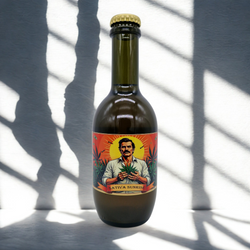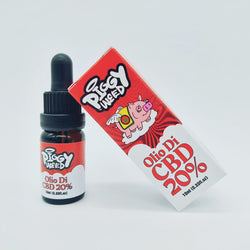What a strange word: linalool, what is it?? It is one of the many terpene present in cannabis, but it has particularly interesting characteristics. What substance is linalool?Technically, linalool is a monoterpene consisting of an eight-carbon chain with a double bond at positions 1 and 6. It is classified as an “alcohol” and is the main constituent of essential oils of lavender, citronella and orange. This biomolecule is also present in rosewood and contributes, as we said, to the extraordinary scent of cannabis. Cannabis oil in fact contains a good percentage of linalool.
But the substance is not only known for its scent: according to some studies, linalool can have a modulatory role on glutamatergic neurotransmission and therefore interfere with memory mechanisms. It seems that this terpene also has other interesting calming and anti-stress powers.
Where is Linalool Found?
Linalool is responsible for that pleasant aromatic aftertaste, similar to lavender, which is especially noticeable in some varieties of cannabis. In nature it is also present in fruits such as bergamot, grapes, mandarin, in roots such as ginger and in aromatic plants such as lavender, oregano, sage, coriander. Linalool is present in all these plants with a specific function: to keep harmful insects away thanks to the smell and at the same time to attract bees to help the pollination process (in some plant species). The interesting thing for us, beyond botany, are the many Linalool properties which are currently under study.
Effects of Linalool (linalool)
Several studies have explored the Potential of linalool to improve human health, although no direct experiments have been carried out on people so far. In any case, the research is encouraging because it seems that linalool can influence different mental states:
- Memory: it seems, according to some studies, that linalool can aid in the acquisition of new information and the maintenance of memory, making it useful for students and in cases of cognitive decline.
- Calm: Linalool would act as a natural sedative, promoting sleep and thus potentially helping to resolve insomnia without drugs.
- Relief: Linalool may limit the perception of pain by acting as a natural painkiller. This is because the terpene interacts with the opioid receptors present in our body.
- Anti-anxiety: according to the studies Linalool may have excellent anxiolytic properties. This is one of the reasons why, for example, lavender oil, a plant rich in linalool like cannabis, is used in aromatherapy.
- Anti-epilepsy: linalool, by inhibiting glutamate, would be able to discourage excitability and prevent the onset of convulsions.
- Anti-depression: studies on linalool conducted on rats have shown that it has a natural and safe antidepressant function because it does not involve DNA mutations. Already today, plant extracts containing linalool are used in the preparation of antidepressant drugs.
- Against cognitive degeneration: studies Studies conducted on linalool on guinea pigs affected by cognitive decline have demonstrated a better preservation of cognitive and emotional faculties.
For all these reasons, research on linalool is extremely important. This explains, among other things, why oils, buds and cannabis seeds They actually have a sedative, analgesic and antidepressant function.
Is Linalool Dangerous?
Some people think that the linalool banned because of its danger to human health. In reality these people get confused because they start from the wrong assumption that “Linalool and Lilial are the same thing”. Lilial is a chemical compound used as a fragrance that has been banned because it is toxic to human health. Lilial was present, until recently, especially in perfumes and shower gels to which it gave a “citrus” scent. This substance was recently banned because it can cause skin problems and today it is no longer present in cosmetics. Needless to say, linalool and lilial are two completely different things: the first is a natural biomolecule and the second is a chemical compound.
Linalool is a safe substance which does not cause problems to human health and is well tolerated in the right quantities, furthermore it is quickly assimilated by the body and it is very difficult to risk taking too much. Some people may have for the Linalool allergy, and this is the only case in which it is not recommended to use products that contain it even in minimal quantities.
CONCLUSIONS
The benefits of linalool make it a precious component in various fields, from traditional medicine to aromatherapy, to cosmetics and personal care products. The presence of linalool in CBD oil makes it a better ally against anxiety, stress, but also against more serious problems such as epilepsy, depression and cognitive decline. Linalool has a pleasant scent but it should not be confused with lilial, which is toxic, and is an excellent natural alternative. Its benefits can be found both by inhaling it and by using it topically: one of the many gifts that nature never ceases to give us through its fantastic herbs.





